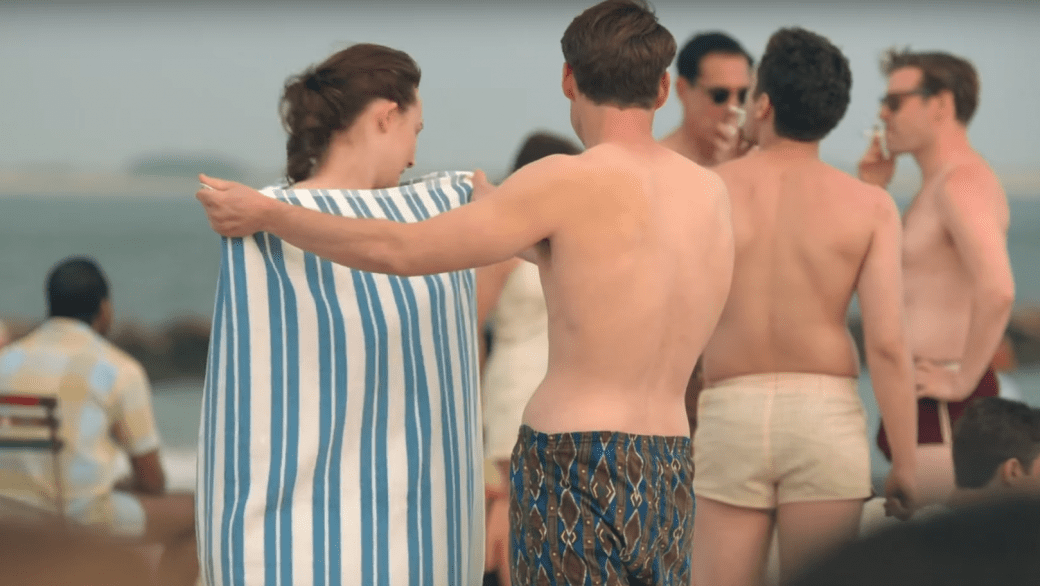I’ve noticed a trend creeping up on me over the last little while — I don’t think it’s been officially observed, but it needs to be noted. Queer idealization of the family has been a prevalent theme in literature. For evidence, look no further than two hit movies released this year, both based on novels by queer authors: Brooklyn and Room.
Brooklyn is the type of movie that is often described as luminous, and certainly one that (as many reviewers have mentioned) you can comfortably bring your grandmother to see. My eyes were wet with tears through most of it. Though the piece is ostensibly about a young Irish woman’s experience as an immigrant in America, the actual subject matter is family — a young woman’s devotion to her mother and her sister, and eventually to her future husband. The conflict set-up is a rather false one: Will Ellis return to the man she loves, or will she return to Ireland and desert him? There is no question really — it’s a matter of growing up, and what many young, heterosexual women eventually aspire to do, which is leave the bosom of one family to create another.
Brooklyn is based on a novel by gay writer Colm Tóibín, and Room is based on a bestseller by lesbian novelist Emma Donoghue. There is no reason why the sexuality of these two authors should be mentioned, except for what you will read here. For what I find fascinating about both of these movies is a particular kind of idealization of the family that I think is specific to the experience of authors whose sexuality is outside the norm.
My theory is that queers of all stripes are often born into families that are heterosexual and thus, they feel fundamentally alienated from them. This is not to say that all gay and lesbian people hate their families, or even that they harbour a conscious awareness of difference. But we queers know — sometimes in a subconscious way — that we will not grow up to be heterosexuals, and the “typical”desires, role models and ultimate outcomes will never apply. This makes us feel like outsiders, no matter how much our families love us, how much we love them or how relaxed they may be (or may become eventually) about our sexualities.
For some gay and lesbian writers (not all, of course) this profound alienation is transformed into art. They express, in literature, a poignant longing for a family bond that is impossible because it is perfect. The epitome of this kind of nostalgia can be found in the work of several prominent queer literary outsiders, including Thornton Wilder, Marcel Proust and JM Barrie.
Our Town represents perhaps the epitome of this sentiment. At the centre of this play is an unrelentingly elegiac longing for small-town family connections. Of course such intimacy is possible, but what makes Wilder’s play rare is his insistence that such intimacy is not only absolutely necessary, but deeply profound. Marcel Proust’s In Search of Lost Time famously creates a myth around the memory of his mother that captures the piercing, heart-wrenching essence of an ultimate epiphany of love. And JM Barrie (a man of dubious and perhaps scandalous sexuality who never had intimate relations with women) created a fantasy based on a real life (his friends the Du Mauriers) that he loved almost to death. The Darlings are certainly a family that few of us will ever forget.
I am not judging these writers — or the movies like Brooklyn or Room. Rather, I am observing a literary tendency which is interesting, because it is so often associated with iconic works that may shape our worldview in ways we may not be fully conscious of.
Be forewarned. You may feel a twinge of insecurity about the portrait of family life presented in these holiday movies because it appears to be too good to be true. It may help to remember that, in actuality, it is.

 Why you can trust Xtra
Why you can trust Xtra


